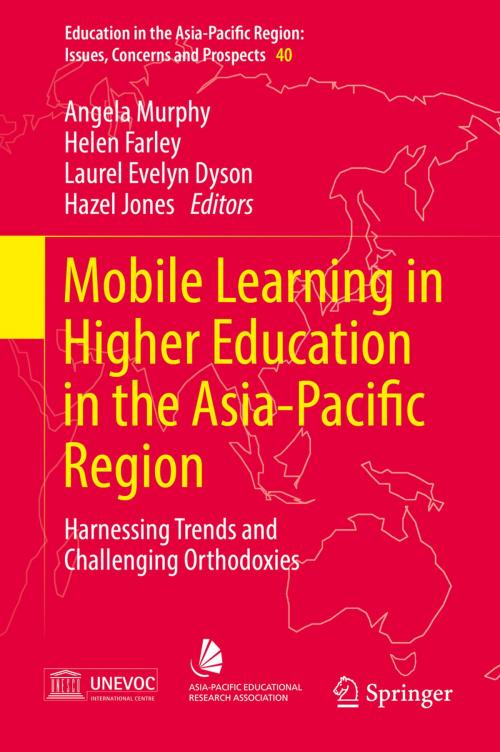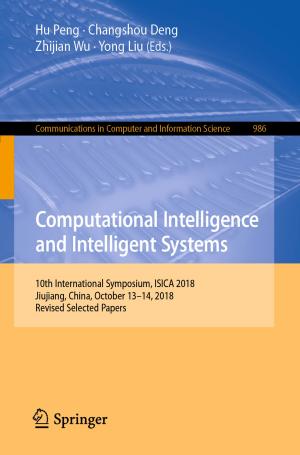Mobile Learning in Higher Education in the Asia-Pacific Region
Harnessing Trends and Challenging Orthodoxies
Nonfiction, Reference & Language, Education & Teaching, Teaching, Computers & Technology, Higher Education| Author: | ISBN: | 9789811049446 | |
| Publisher: | Springer Singapore | Publication: | July 6, 2017 |
| Imprint: | Springer | Language: | English |
| Author: | |
| ISBN: | 9789811049446 |
| Publisher: | Springer Singapore |
| Publication: | July 6, 2017 |
| Imprint: | Springer |
| Language: | English |
If mobile technologies are to be effectively used in education, how do we best implement sustainable mobile solutions for teaching and learning? The aim of this handbook is to support educators and policy makers who are investing in innovations in digital education to develop effective and sustainable mobile learning solutions for higher education environments.
Authors from sixteen countries across the Asia-Pacific region have collaborated to share their experiences with developing and implementing mobile learning initiatives. These projects focus on a variety of aspects of mobile learning innovation, from the trial adoption of existing social media platforms on mobile devices and the development of specialised applications or mobile learning systems, to the large-scale, interuniversity implementation of technologies and pedagogies to support mobile learning.
Each chapter addresses challenges and solutions at one or more levels of mobile learning innovation within the education system, encompassing the student perspective, the educator perspective, technical processes, policies and organisational strategy, and leadership. The book also offers a unique perspective on the integration of mobile learning innovations within the educational, political and cultural environments of Asia-Pacific countries.
If mobile technologies are to be effectively used in education, how do we best implement sustainable mobile solutions for teaching and learning? The aim of this handbook is to support educators and policy makers who are investing in innovations in digital education to develop effective and sustainable mobile learning solutions for higher education environments.
Authors from sixteen countries across the Asia-Pacific region have collaborated to share their experiences with developing and implementing mobile learning initiatives. These projects focus on a variety of aspects of mobile learning innovation, from the trial adoption of existing social media platforms on mobile devices and the development of specialised applications or mobile learning systems, to the large-scale, interuniversity implementation of technologies and pedagogies to support mobile learning.
Each chapter addresses challenges and solutions at one or more levels of mobile learning innovation within the education system, encompassing the student perspective, the educator perspective, technical processes, policies and organisational strategy, and leadership. The book also offers a unique perspective on the integration of mobile learning innovations within the educational, political and cultural environments of Asia-Pacific countries.















